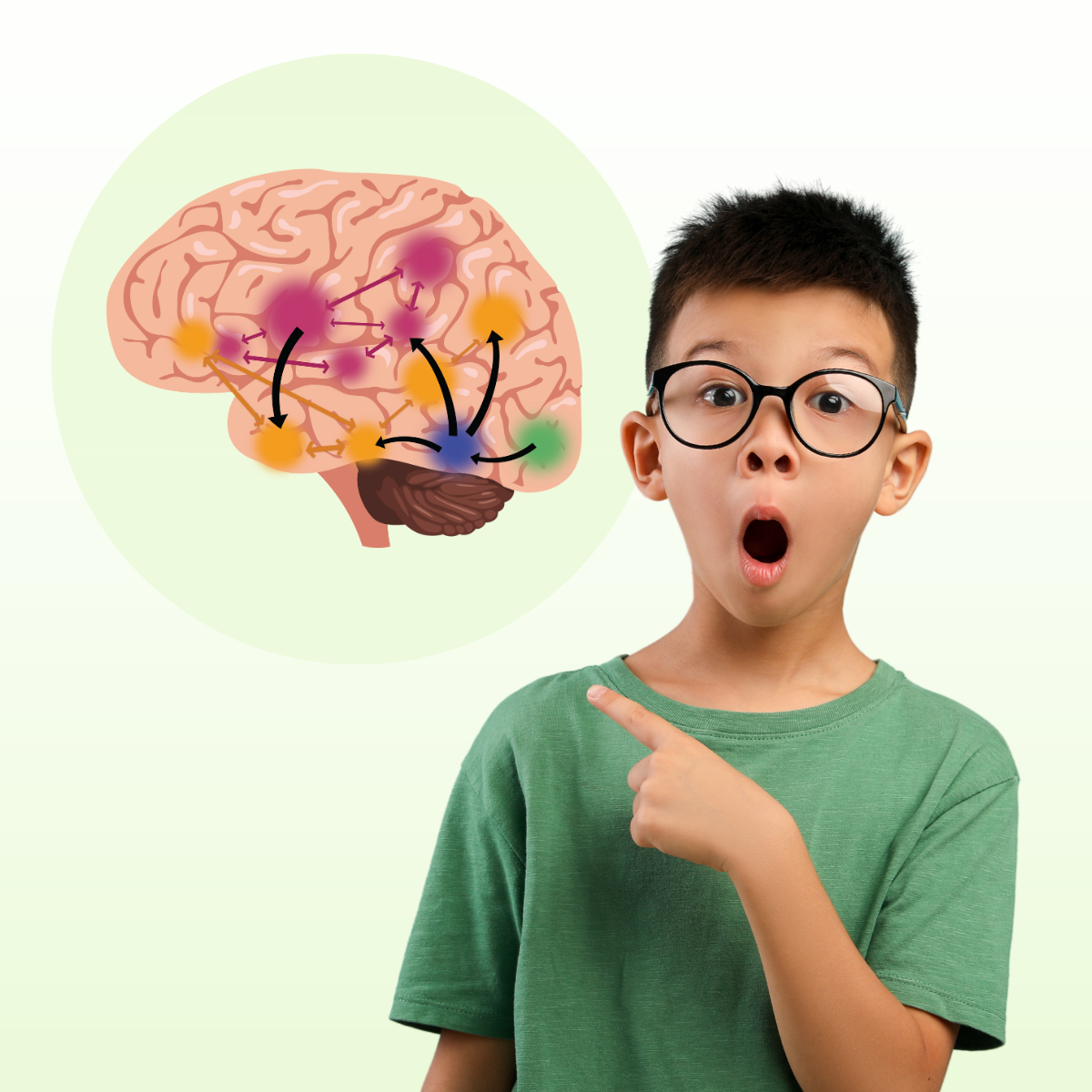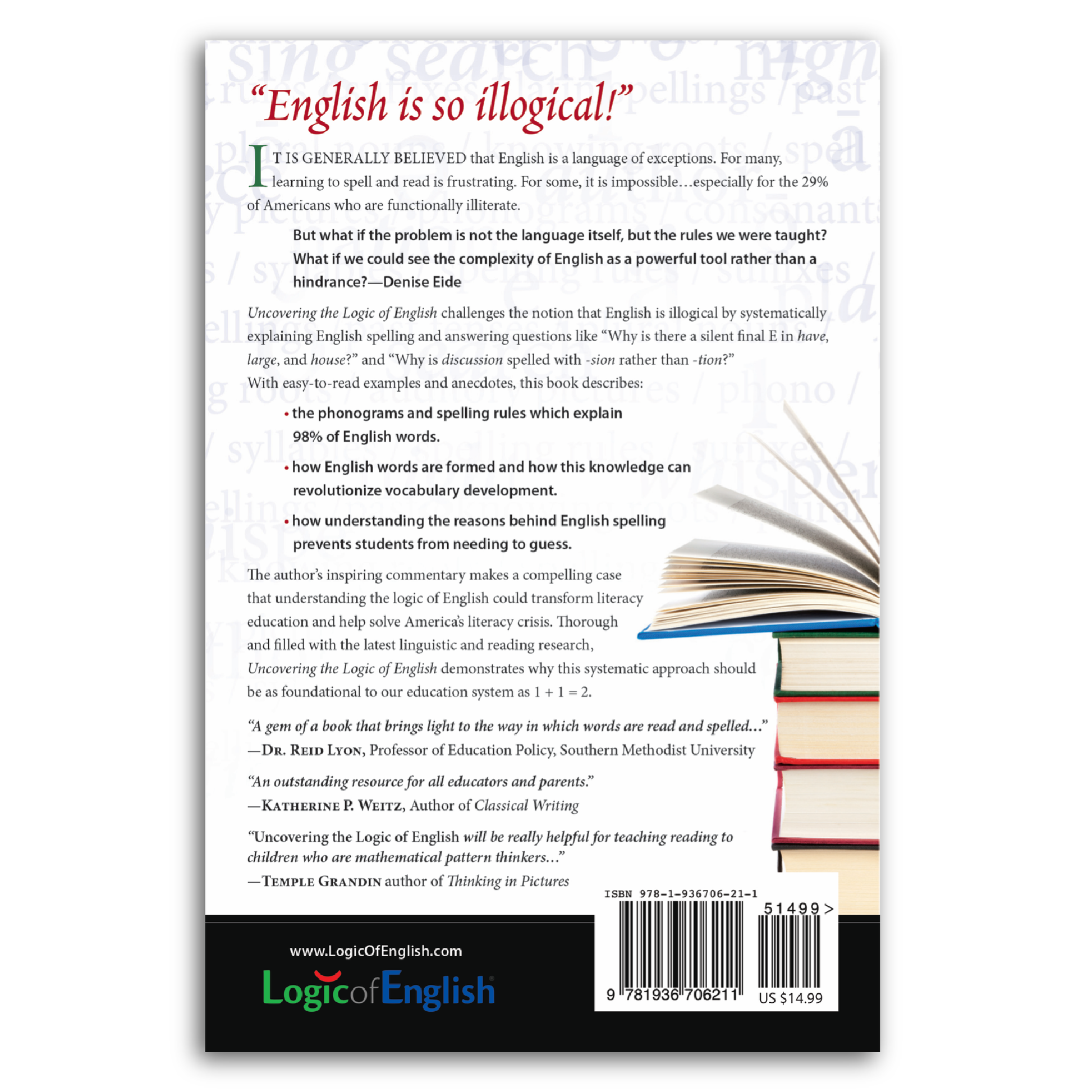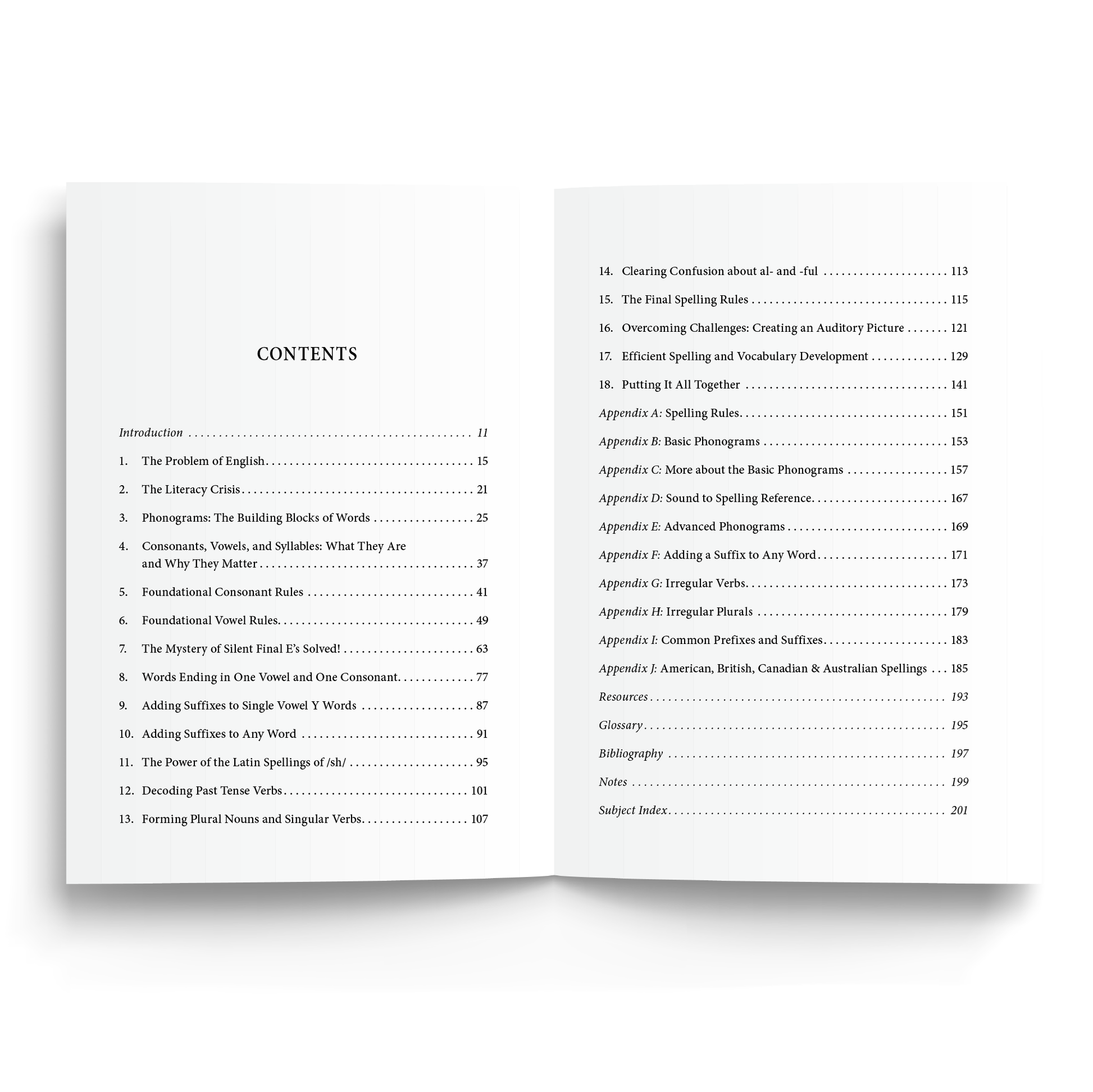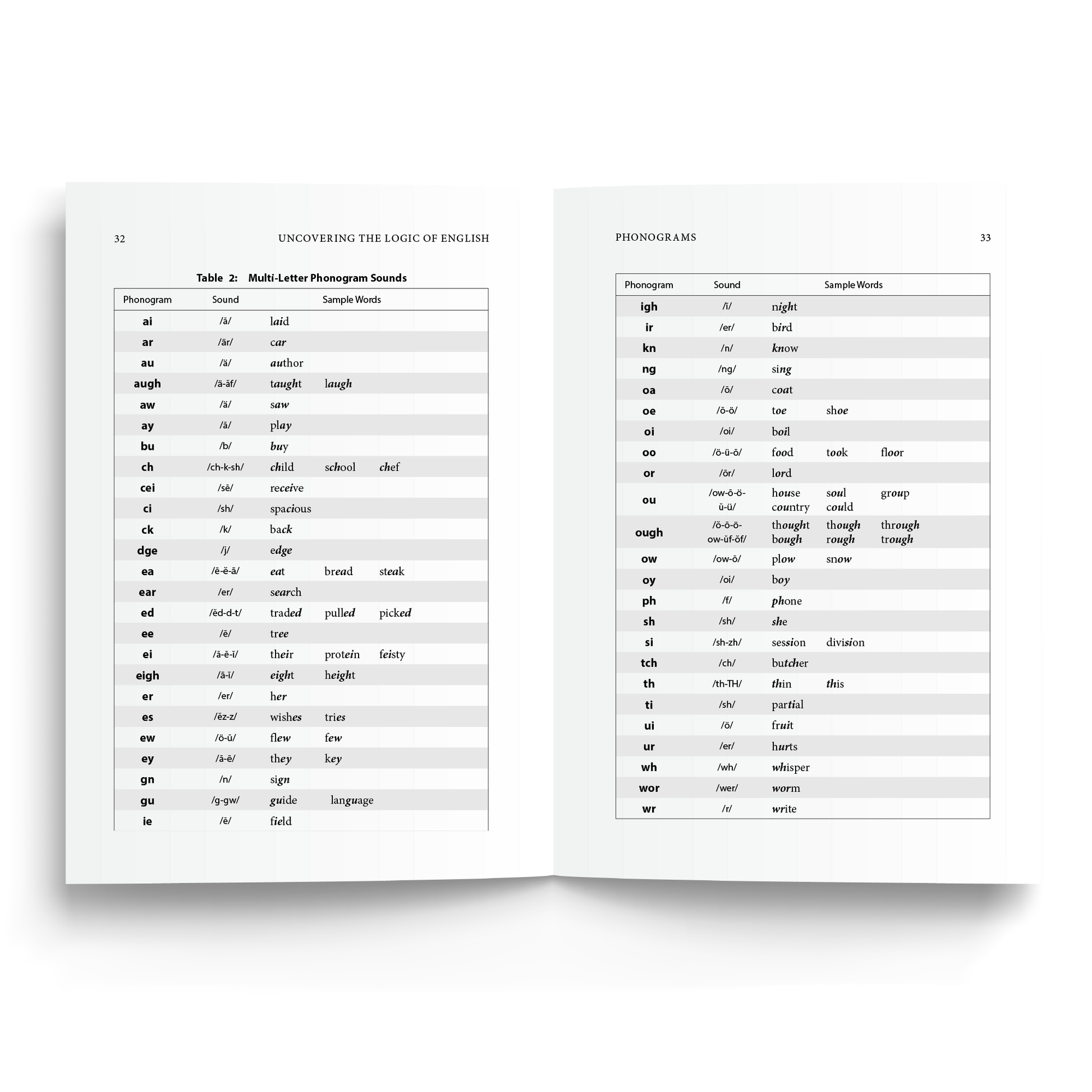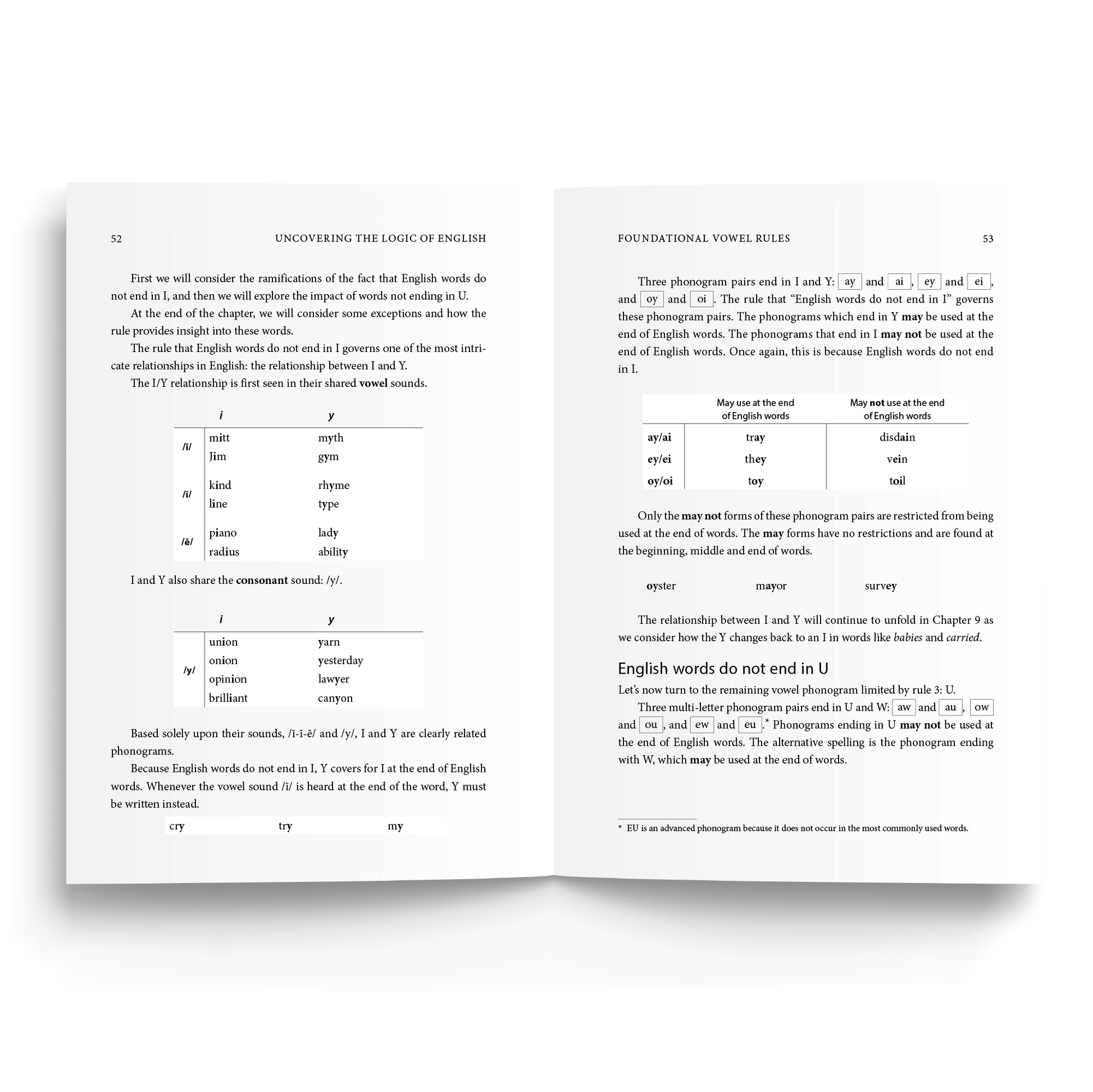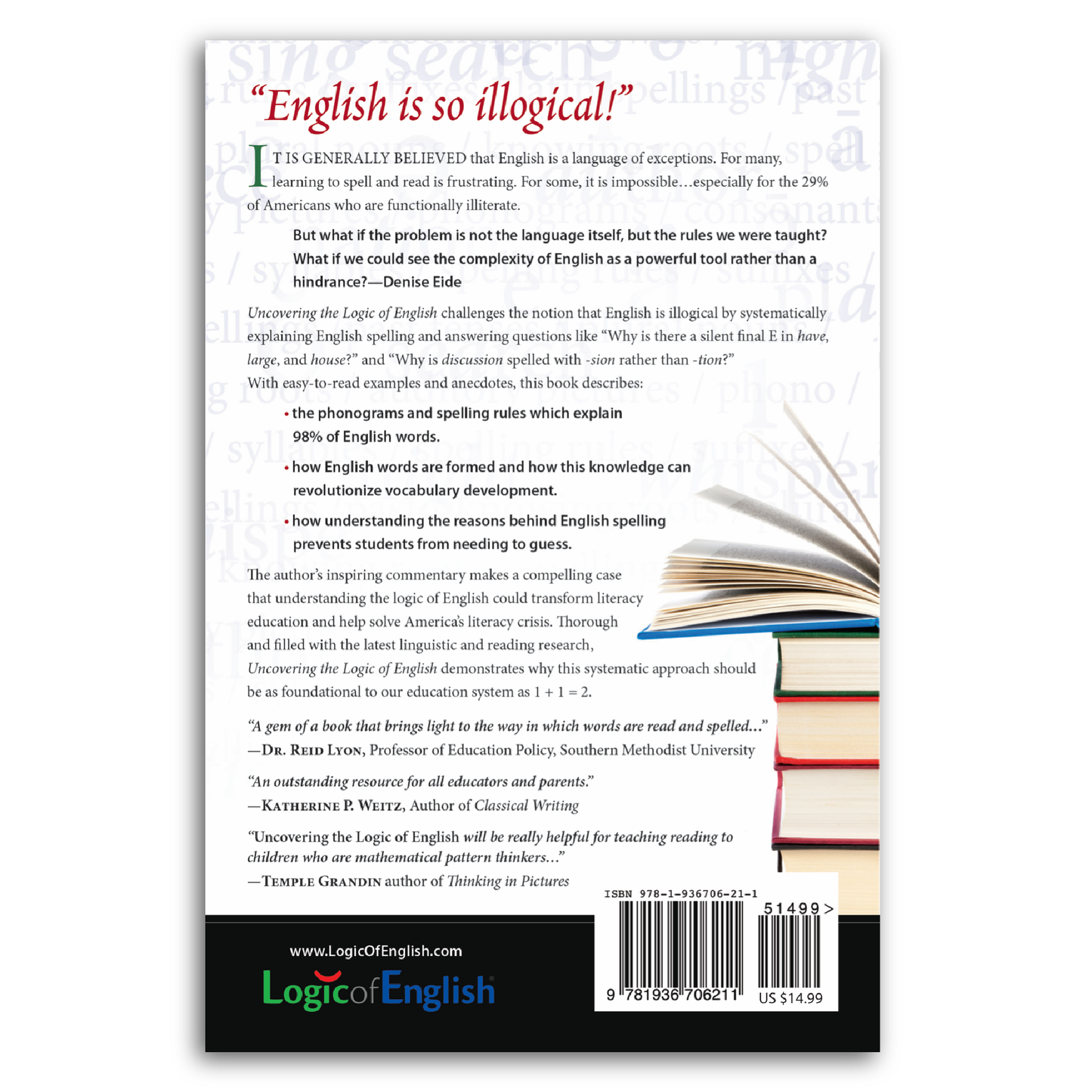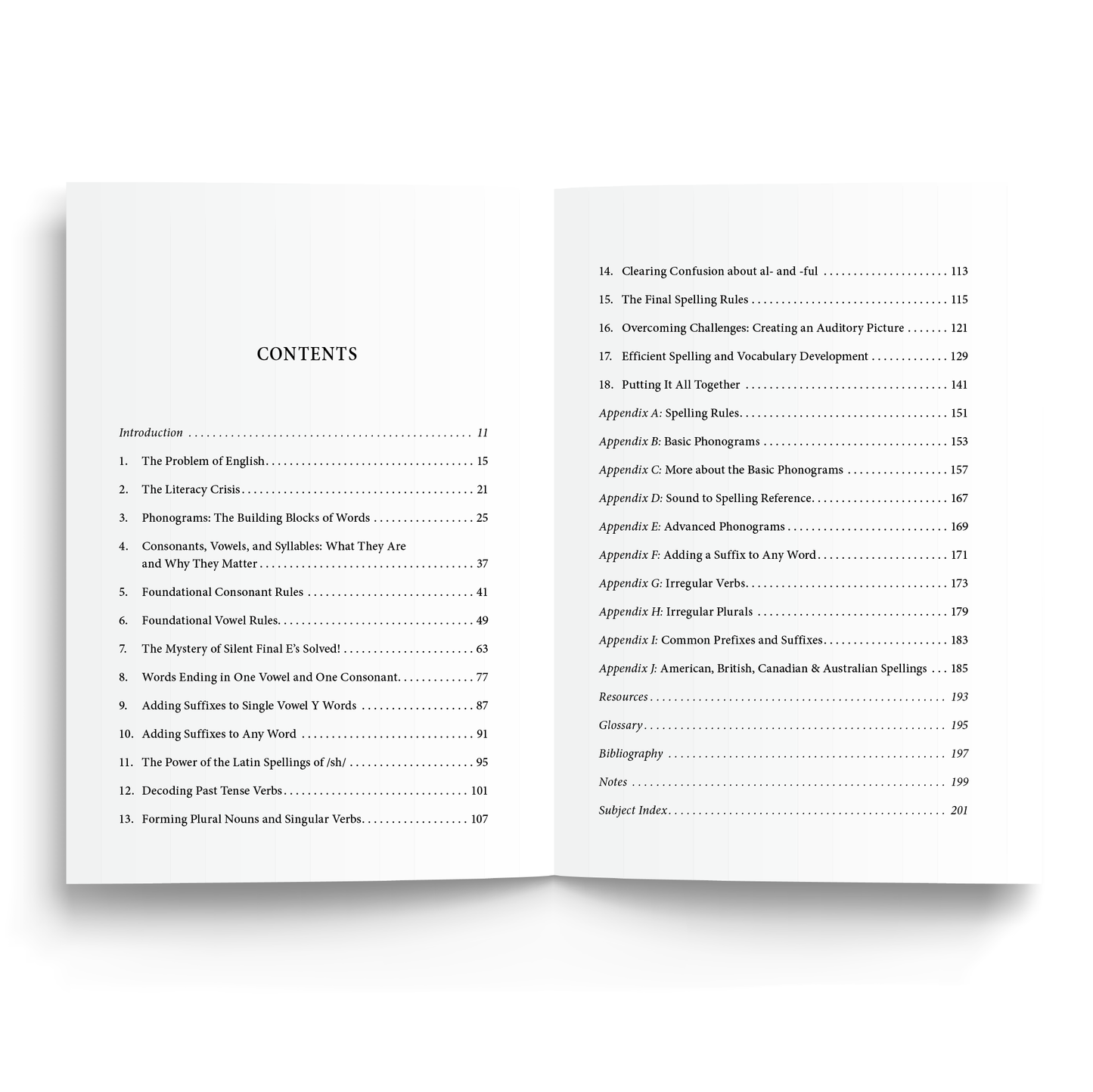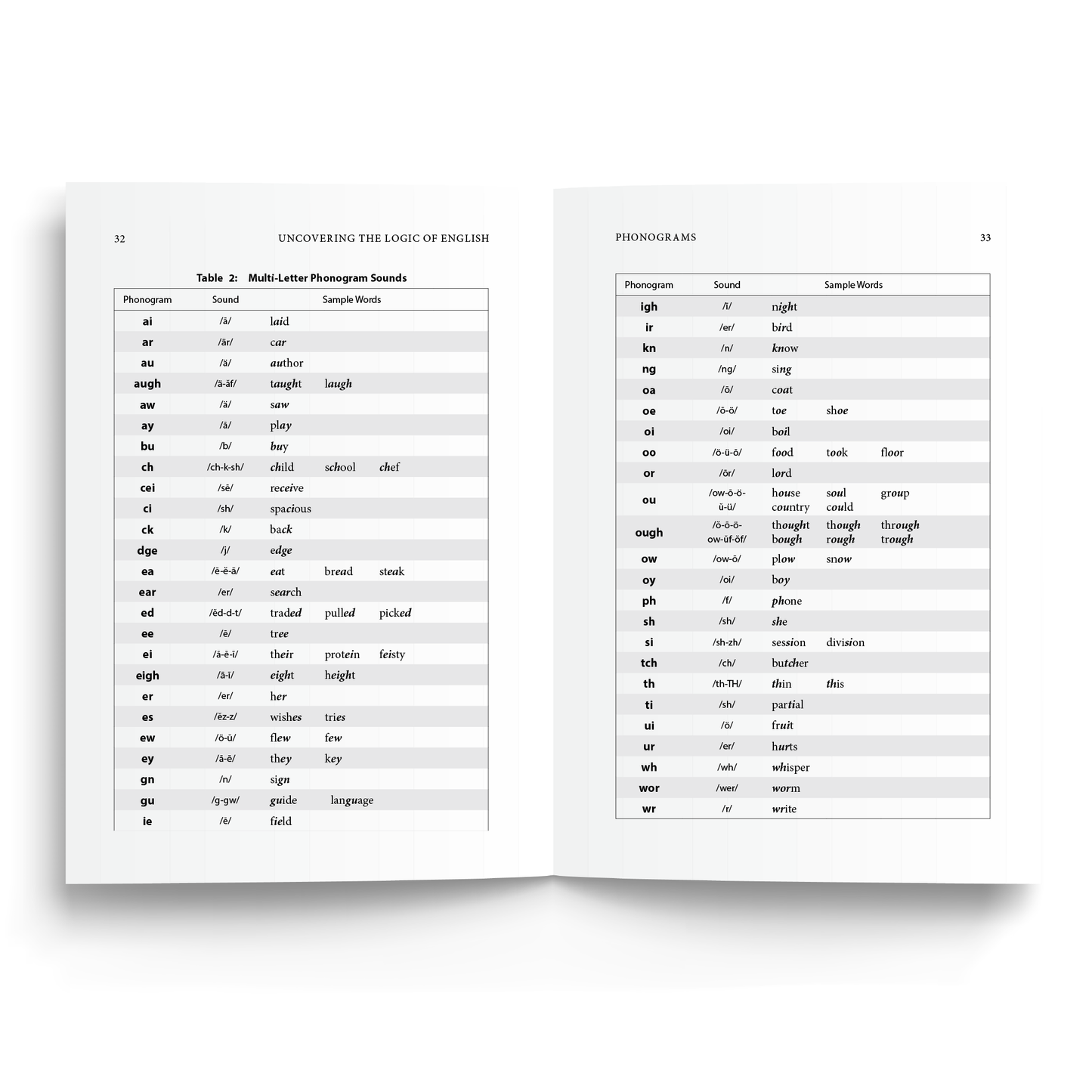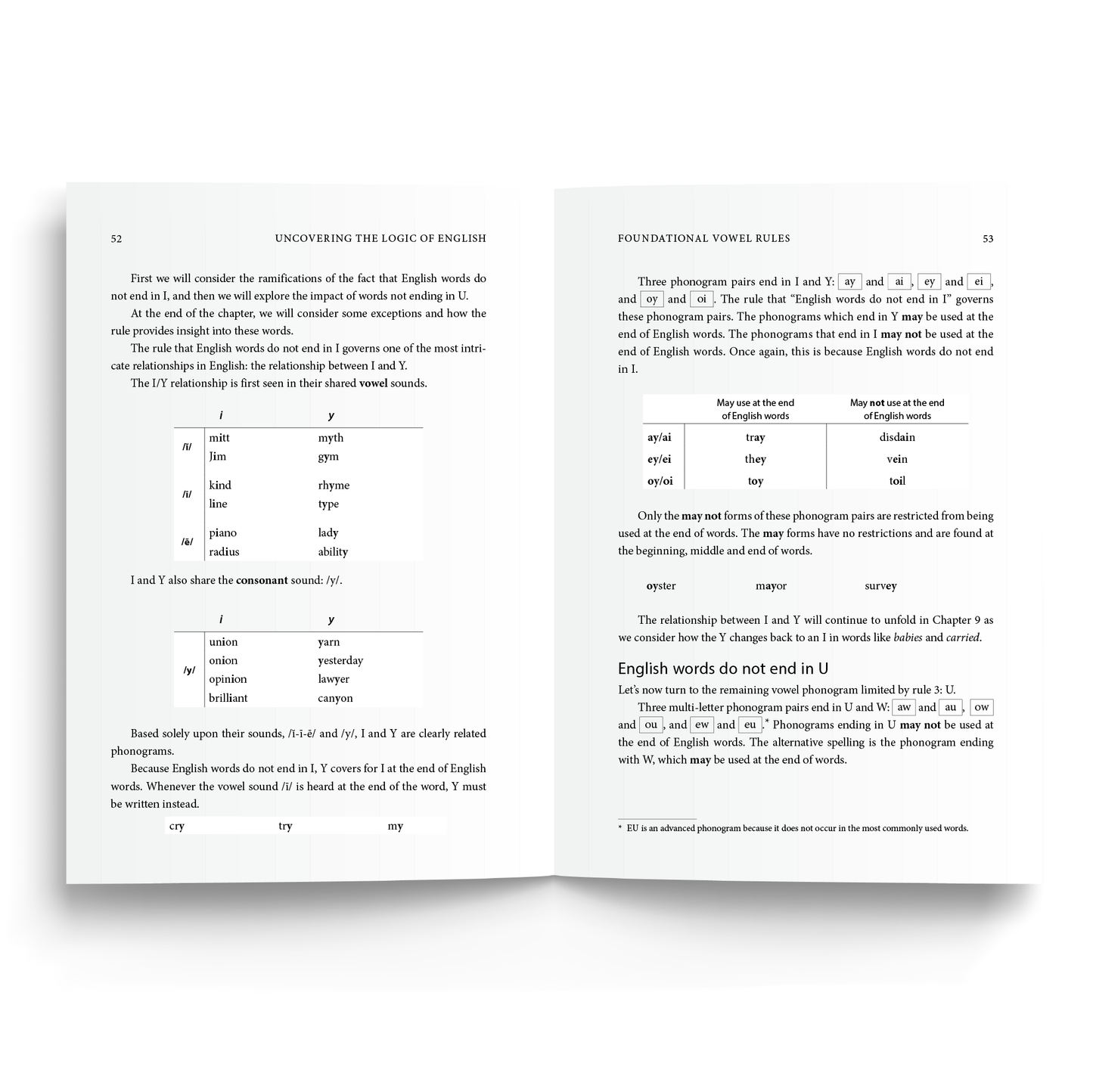-
Over
50% of adults struggle to read at a sixth grade level.
-
Approximately
85% of juveniles in the U.S. court system are illiterate.
Together, we can reverse the literacy crisis facing America.
Everyone has the right to learn to read.
"When the phonograms and rules of English are taught in a systematic manner through solid, multimodality teaching methods that develop visual muscle memory, prevent reversals, and address the needs of all types of learners, we will be on our way to solving the literacy crisis for all its current victims and preventing it in future generations. The logic of English needs to be taught from the very beginning of every child's education so that everyone can succeed."
Denise Eide
Uncovering the Logic of English
References
"Average Prose, Document and Quantitative Literacy Scores of Adults: 1992 and 2003." National Center for Education Statistics, n.d. https://nces.ed.gov/naal/kf_demographics.asp#1.
Dehaene, Dr. Stanislas. 2013. "Lecture by Dr. Stanislas Dehaene on 'Reading the Brain.'" April 30. https://www.youtube.com/watch?v=CNgEUuKcHko.
Dehaene, Stanislas. 2010. Reading in the Brain. Penguin Books.
Eide, Denise. 2012. Uncovering the Logic of English. Second. Minnesota: Logic of English.
Langan, Patrick A., and David J. Levin. "Recidivism of Prisoners Released in 1994." Bureau of Justice Statistics. U.S. Department of Justice, June 2002. https://bjs.ojp.gov/content/pub/pdf/rpr94.pdf.
"Literacy Behind Prison Walls." National Center for Education Statistics. U.S. Department of Education, October 1994. https://nces.ed.gov/pubs94/94102.pdf.
Music, Emily. "Teaching Literacy in Order to Turn the Page on Recidivism." JL & Educ. 41 (2012): 723.
Seidenberg, Mark. 2018. Language at the Speed of Sight: How We Read, Why So Many Can't, and What Can Be Done About It. Basic Books.
Twyman, Janet S. "Faultless communication: The heart and soul of DI." Perspectives on Behavior Science 44, no. 2 (2021): 169-193.
U.S. Literacy Rates by State 2024. (2024-08-28). World Population Review. https://worldpopulationreview.com/state-rankings/us-literacy-rates-by-state





